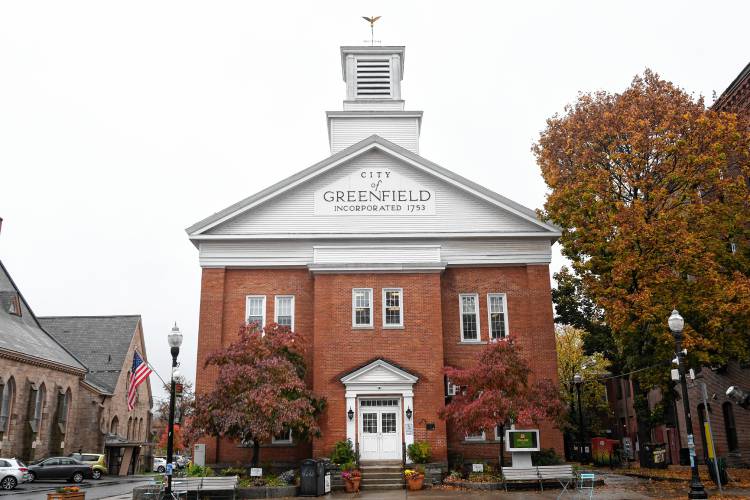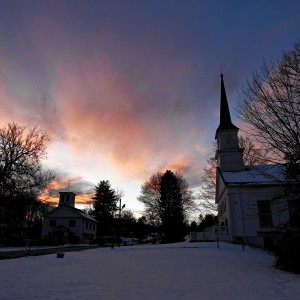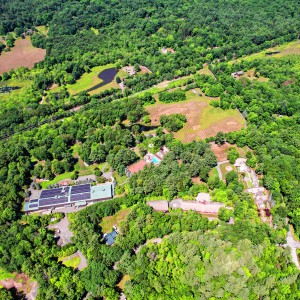Greenfield struggles to track rentals as assessors mull residential tax exemption

Greenfield City Hall STAFF FILE PHOTO/PAUL FRANZ
|
Published: 08-28-2024 3:44 PM
Modified: 08-29-2024 9:57 AM |
GREENFIELD — Of the city’s estimated 985 multi-family homes, Board of Assessors member Chuck Green said the number of rental units in Greenfield, and their addresses, remain unknown.
As the Board of Assessors works to draft a proposed tax rate for City Council review this fall, board members discussed the possibility of implementing a residential exemption — cutting taxes for property owners who live in their homes and raising taxes for owners of rental properties who live elsewhere — with the Ways and Means Committee.
At a joint meeting between the two panels last week, Chief Assessor Randall Austin said he does not advise the city to implement a residential exemption, arguing that the option could cause landlords to raise rent prices. Austin also said it isn’t known how many rental units are within Greenfield’s borders.
“We don’t have a rental registry, we don’t know where rentals are in town. We have stuff in our database about how many units are in something based on an appraisal that happened whenever it happened. So, we can make estimates and have some kind of ideas, but it’s not going to be a perfect number,” Austin said.
The city’s 2022 parcel data estimates that there are roughly 985 multifamily homes in Greenfield, 365 of which are owner-occupied and 620 which are owner-absent. However, in an interview Tuesday, Green said technological challenges associated with recording addresses from property tax bills make collecting and registering accurate addresses a complicated task.
Green said since the city does not currently have a residential tax exemption, its lack of a rental registry does not have a substantial impact on the city’s tax levy. He noted that an up-to-date registry would help both the city’s building and health departments enforce codes.
“There’s a lot of things that that could be done if we actually knew not only exactly how many rentals there were, but what their addresses are,” Green said. “If there are rentals that [the Building Department] doesn’t know about, there might be implications. For example, fire sprinklers, there are definite requirements for fire protection that vary based on how many units are in a building … the Health Department is obviously very interested in rental units to make sure that they can verify that the unit is meeting all the appropriate health regulations and that it’s a safe, a good place for people to live.”
If the city chooses to implement a residential exemption in the future, Green said the creation of a registry would significantly help the city differentiate between homes owned and occupied by city residents, and those rented out, such as Airbnb lodging or apartments.
Article continues after...
Yesterday's Most Read Articles
Discussing the difficulties involved with tracking down all of the city’s rental properties, City Councilor At-Large Michael Terounzo, who serves as Ways and Means chair, said some Greenfield property owners fraudulently list apartments they rent in the city as their primary addresses in order to maintain their right to vote in municipal elections or send their children to Greenfield schools.
Alongside technological challenges that come with digitally listing addresses, Green said staffing shortages across City Hall leave Greenfield without the manpower needed to identify and register the addresses of all the city’s apartments. He said that in other municipalities, it is typical for the Health Department to create and manage a rental registry.
“The city does a good job at not overspending the taxpayer’s dollar,” Green said. “Most departments are at least a little, if not significantly, understaffed, so there’s definitely no extra room for people to be running around creating something like this. The idea would be that, if there was a benefit that seemed to be significant, the resources could benefit all the departments.”
Anthony Cammalleri can be reached at acammalleri@recorder.com or 413-930-4429.






 ‘It’s a Wonderful Night in Turners Falls’ showcases village businesses, nonprofits
‘It’s a Wonderful Night in Turners Falls’ showcases village businesses, nonprofits Sackrey Construction Co. of Sunderland celebrating 35 years in business
Sackrey Construction Co. of Sunderland celebrating 35 years in business Photo: As darkness falls
Photo: As darkness falls Leverett residents rap Kittredge compound plans, urge caution as negotiations for 400 homes move forward
Leverett residents rap Kittredge compound plans, urge caution as negotiations for 400 homes move forward 
